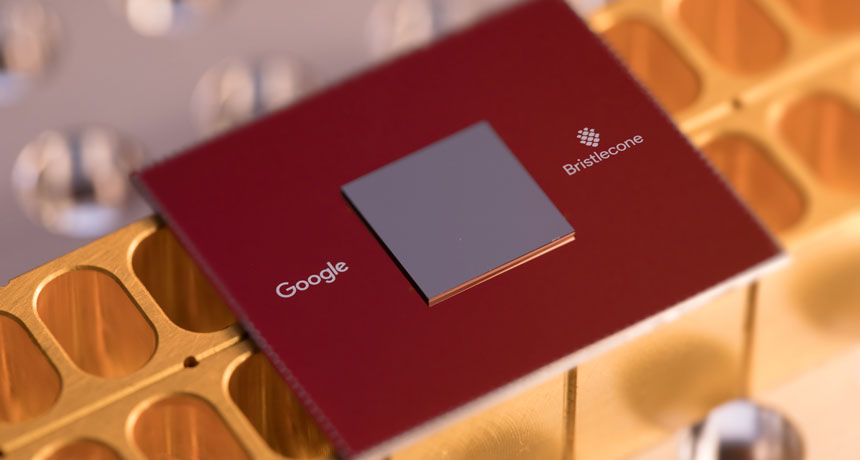
Analysts from Google are trying a quantum PC with 72 quantum bits, or qubits, researchers revealed March 5 at a gathering of the American Physical Society a major advance up from the organization’s past nine-qubit chip.
The group plans to utilize the bigger quantum chip to show quantum matchless quality out of the blue, playing out a computation that is inconceivable with conventional PCs (SN: 7/8/17, p. 28), Google physicist Julian Kelly announced.
Accomplishing quantum matchless quality requires a PC of more than 50 qubits, yet researchers are as yet attempting to control such a large number of finicky quantum elements without a moment’s delay. Not at all like standard bits that go up against an estimation of 0 or 1, a qubit can be 0, 1 or a mashup of the two, because of a quantum characteristic known as superposition.
Nicknamed Bristlecone in light of the fact that its qubits are orchestrated in an example looking like a pinecone’s scales, the PC is presently being put through hell. “We’re simply beginning testing,” says physicist John Martinis of Google and the University of California, Santa Barbara. “From what we know up until now, we’re exceptionally hopeful.” The quantum matchless quality showing could go in close vicinity to a couple of months if everything functions admirably, Martinis says.
Google is one of a few organizations attempting to make quantum PCs a reality. IBM reported it was trying a 50-qubit quantum PC in November 2017 (SN Online: 11/10/17), and Intel declared a 49-qubit test contribute January.
Citations
J. Kelly. Engineering superconducting qubit arrays for quantum supremacy. American Physical Society March Meeting, Los Angeles, March 5, 2018.